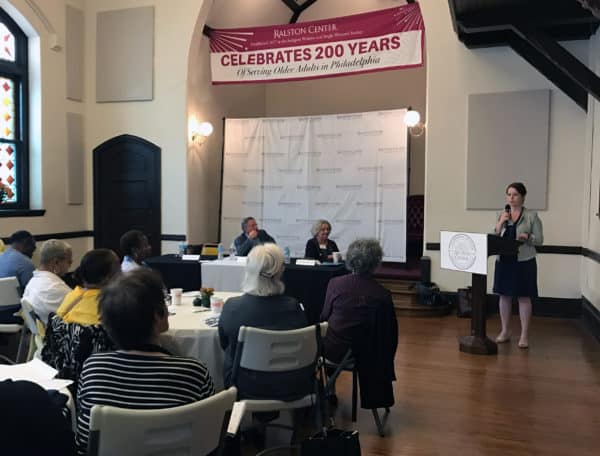by Joyce Lee
Those who haven’t experienced it might not realize, but caring for someone with dementia can be a grieving process, Alison Lynn, assistant director of care programs at Penn Memory Center, said last month at the Ralston Center’s workshop for family and caregivers of older adults with dementia.
As a social worker at the Penn Memory Center, Lynn explained she often helps caregivers with three major tasks:
- building feelings of self-worth and self-care
- communicating personal needs to family and friends
- managing the behavioral needs of their loved ones.
With the last point, Lynn said she often asks caregivers to be “behavioral detectives” and observed that behavior can be the patient’s way of communicating.
During the Q & A, one caregiver asked how to deal with a situation where a family member with symptoms of dementia refuses to go see a physician. Lynn recommended telling the family member “we’re going together to get checked out,” but she also added that the caregiver shouldn’t force the patient if the patient does not want to go. Sometimes it’s when the symptoms get worse that the patient agrees to see a physician, she said.
Another caregiver asked about what to do when a family member with dementia insists on something you know is not true. Lynn said there is often no reason to argue with the patient under these circumstances, and a “therapeutic white lie” could help the patient maintain a sense of dignity and independence.
One thing Lynn said works well when caring for those with dementia is to use the “Yes And” strategy from improvisational comedy. In the game, the respondent validates what the previous person said (“yes”), then adds their own thoughts or ideas on top of it (“and”).
The Caring for an Older Adult with Dementia Workshop was held at the Ralston Center on October 11. The workshop was co-sponsored by the Ralston Center and the Keystone Center for Geriatric Care and Education.
